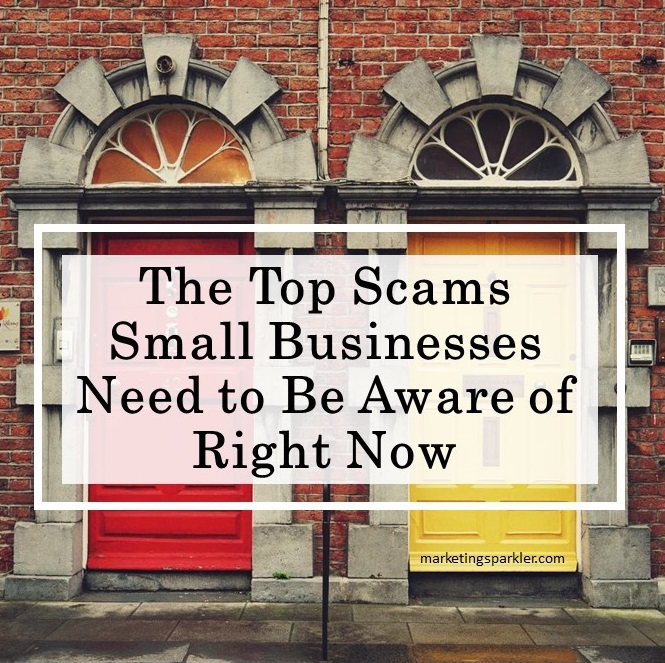Scammers are always trying to find the most vulnerable databases to attack. Small-business owners must guard their resources against such shenanigans. Knowing the top scams helps you prepare for the worst-case scenario and avoid the pitfalls.
Here are eight top scams to be aware of and ways to combat them to keep your company, employees and reputation safe.
The Top Scams Small Businesses Need to Be Aware of Right Now
1. Delivery Driver Support Scam
The U.S. Federal Trade Commission recently pointed to a new top scam involving food delivery services and people posing as support to steal personal information. The scammer calls an Uber Eats or DoorDash employee and says they’re sending a free support tool, such as a tablet, and they need to verify some information. Sometimes, they tell the driver they need their bank account number to refund them for a problematic order.
The scammers may try to get your email address and then ask you to verify with the code you received. Protect yourself and your business against such scams by never giving out a code and always saying you will call back. Use a direct customer support number, not the one the scammer gives you or from caller identification.
2. Phishing
Phishing is nothing new — scammers have been trying to trick people into giving them information for years. The phishing scam usually comes in the form of an email. It might look like it came from a certain site, such as your bank or PayPal.
Users who click on the link are taken to a site that looks identical to the official one. You punch in your login credentials and the hackers have it. Occasionally, phishing is in the form of a text or a phone call. When in doubt, visit or call your banking institution or credit card company to ensure the communication is from them.
Make it a rule to never click on a link in an email. Always look up the address you have on file and go directly to the site.
3. Small-Business Awards
Small-business owners put in long, grueling hours and want to be recognized for their efforts. Vanity presses recognize this and will prey on entrepreneurs.
The scam involves a letter or phone call informing the person they’ve been selected for a prestigious award. Of course, there is a hefty fee to be included or to get a copy of the book. Remember that a distinction should be more like a gift than something you pay a ton of money for.
4. Disgruntled Employees
Professional hackers can access a website around 93% of the time. Former employees can get in 100% of the time if you fail to frequently change login credentials.
Make it a rule to immediately change logins when someone leaves your company. It might be smart to push a password reset to everyone and run some analytics on your servers. A clever informational technology specialist might leave a backdoor open to get back into the system after they go.
Once the former employee can access your databases, they can sell the information to a competitor or go into files to wreak havoc.
5. Fake Invoices
One of the top scams many companies fall for is a fake invoice. Scammers send out bills and assume the business has a different person handling accounting than ordering. It might look like a legitimate expense for consulting, office supplies or software. However, it will come from a place you’ve never actually worked with.
Avoid this scam by keeping the lines of communication open between company leadership and accounting.
6. WordPress Breaches
In a recent survey by Digital.com, researchers found around 51% of businesses admit they sometimes leave customer data unsecured. Many e-commerce brands have an online presence and use the content management system (CMS) WordPress.
WordPress is also quite popular with hackers who try to get into your site through injection attacks or by rapidly firing queries to disable your servers.
Install firewall plugins and insist users choose complex passwords that are difficult to guess.
7. Impersonation Scams
What if someone could pretend to be the CEO of a company? What decisions might they make that would create total havoc for you?
With an impersonation scam, someone pretends to be a decision-maker in your organization. They then call and make moves, such as having a large order delivered to a different warehouse.
8. Government Entity Scams
Small-business owners might be contacted by someone saying they are from the Internal Revenue Service or another government agency. The demand is usually for money owed or they will call the authorities.
First, be aware that the IRS corresponds via physical letters sent through the U.S. Postal Service. Employees will not call and threaten you with legal action.
Second, anytime someone says you must take care of something immediately without checking into it further should raise a red flag. They’re just trying to steal your money or information.
Stay Safe From These Top Scams
These are just a few top scams business owners deal with and must dodge. Protect your company’s assets by studying the agencies you work with and what cyberthieves are attempting with other brands.
Ensure you set a companywide policy to verify any communication you receive. Even if the source seems official, you should be sure it truly is. Train employees to avoid some of the more common schemes and teach everyone to be hypervigilant about anything out of the ordinary. Taking these precautionary steps will help keep your business safe from scammers.
Ciao,
Miss Kemya

